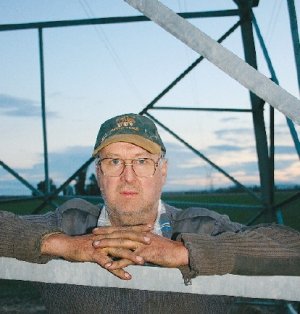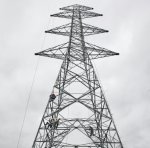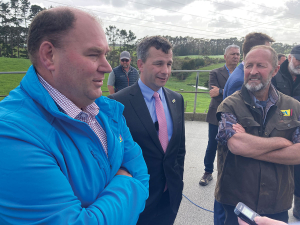AFTER SIX years of negotiations, lock-outs and threats of legal action, national grid operator Transpower has settled with one of the last South Canterbury farmers holding out for compensation for upgrade work on lines crossing his crops.
“It’s taken some fresh faces and fresh ideas to come up with an amicable agreement but they’ve finally recognised even upgrade work can be quite disruptive to some operations,” Jeremy Talbot told Rural News.
While Talbot wouldn’t reveal the detail of the deal struck, he says it’s a one-off compensation payment “along the same lines as the Otago one,” covering disruption to his family’s farm business while concrete footings of four pylons on the Roxburgh – Islington are strengthened.
The footing work follows a doubling of the line’s capacity, or “duplexing”, in 2008.
“For the time and effort I’ve put into this and all the meetings, the payment is probably less than $5/hour, but the principle has been established,” Talbot says.
“I just hope now, in light of the annual rental mentioned in the 1953 document, they see fit to play fair on that too, and not take another six years to sort that out, like it has this time.
“Until rentals and easements are established there is no way Government can even consider selling national infrastructure like this,” he adds.
“Two-thirds of the pylons in New Zealand have neither.”
Transpower says it won’t reveal the detail of individual deals however acknowledges a standard compensation package was agreed further south on the Roxburgh-Islington line.
“This one is in line with the rest of the landowners on that particular project,” spokeswoman Rebecca Wilson told Rural News.
However, the answer to Talbot’s continued calls for an annual rental remains no.
“There are no plans to offer rentals,” says Wilson.
It appears Talbot isn’t the last man standing on this issue in South Canterbury, as Wilson says there’s still “maintenance” to be undertaken “so our discussions with landowners will continue.”
As for what steps Transpower is taking to arrange easements and access terms elsewhere to prevent similar stand-offs, Wilson says the grid operator has ongoing relationships with “its landowners” and some issues take longer to resolve than others.










